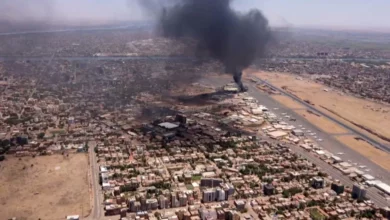Khartoum–Peacekeepers have warned of a build-up of Sudanese army and rebel troops near a strategic town in Dafur, where the security situation has deteriorated after peace talks between the government and rebels stalled.
Separately, long running tribal rivalries in the remote western region had led to clashes, killing 107 people since March, they said.
“The security situation in North Darfur is tense following reports of an increase in the presence of government troops and Justice and Equality Movement (JEM) forces in the Shangil Tobay region,” the joint UN/African Union UNAMID peacekeeping force said in a statement published late on Tuesday.
JEM was one of two rebel forces that launched a revolt against Sudan’s government in 2003, accusing it of starving Darfur of funding and marginalising its population.
Sudan’s president Omar Hassan al-Bashir, who mobilised militias to crush the uprising, is facing International Criminal Court charges of masterminding war crimes in the region.
Two international sources, speaking on condition of anonymity, said there were signs JEM was moving south east through Darfur towards the neighbouring oil-producing region of South Kordofan, where JEM has claimed support in the past.
UNAMID said it was monitoring the situation and called on both sides to avoid “further acts of violence”.
Shangil Tobay is a settlement 70km south of the capital of North Darfur El Fasher, a government stronghold and hub for aid workers and peacekeepers. The area sits between JEM’s current stronghold in West Darfur and South Kordofan.
No one was immediately available from Sudan’s army or JEM to confirm the reports of the build-up.
Khartoum has accused JEM of attacking villages in West and North Darfur states in recent weeks to expand its territory.
Both sides signed a ceasefire and initial peace deal in February but talks soon reached stalemate.
UNAMID said fighting broke out between the rival Misseriya and Rizeigat Nawaiba tribes in West Darfur in March.
The UN said it appeared a violent incident had sparked a cycle of revenge attacks.
“It is spiralling retribution over a killing… the retaliation just cycles out of control,” said Samuel Hendricks, spokesman for the U.N. Office for the Coordination of Humanitarian Affairs (OCHA).
He said rivalries had been exacerbated by competition for pasture, water and other resources.
An initial settlement broke down last week when new fighting broke out in the Mukjar region of West Darfur, said UNAMID.
“It is estimated that since March, the clashes have claimed the lives of 107 people on both sides and have caused many more to flee their homes,” it added.




